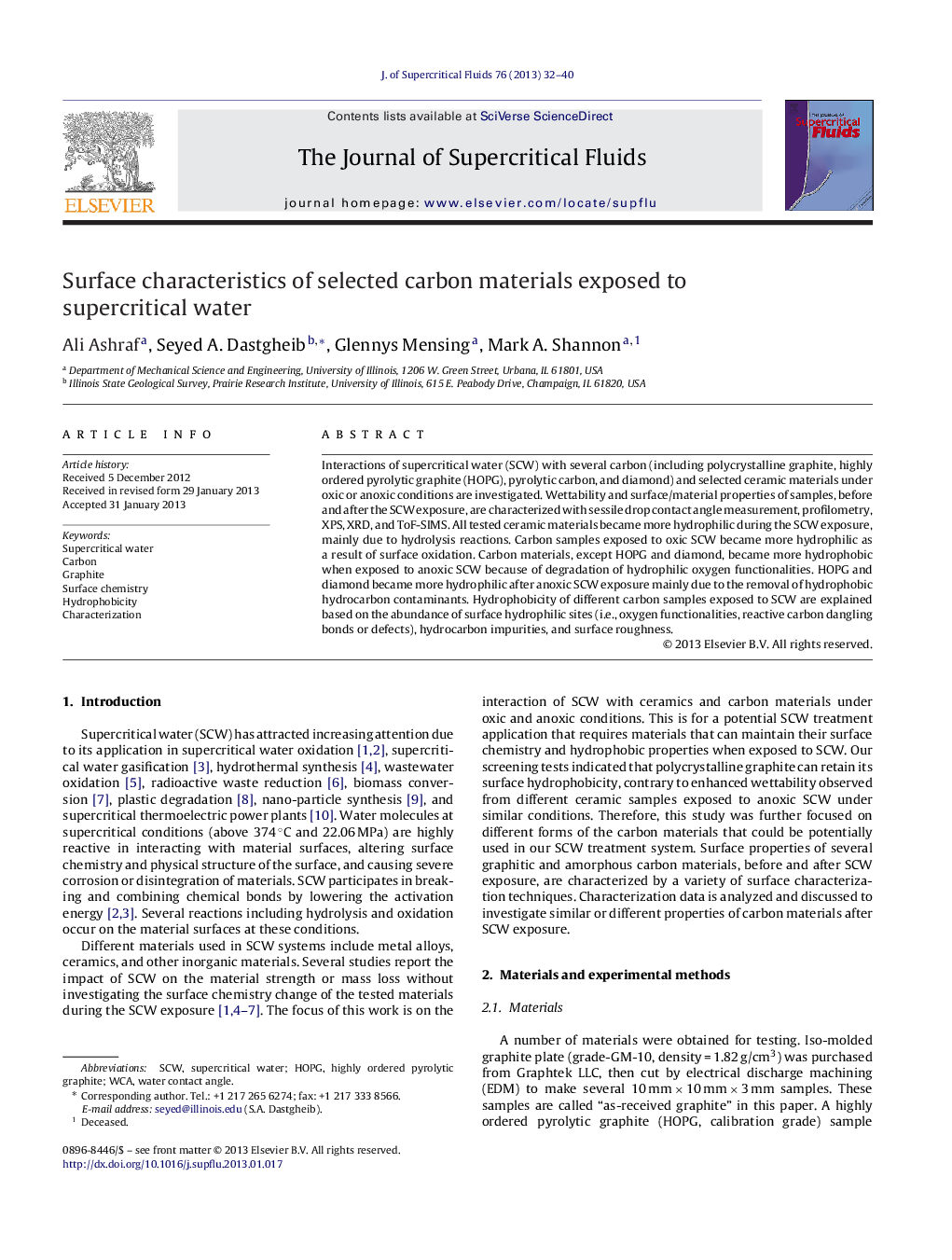| کد مقاله | کد نشریه | سال انتشار | مقاله انگلیسی | نسخه تمام متن |
|---|---|---|---|---|
| 230867 | 1427401 | 2013 | 9 صفحه PDF | دانلود رایگان |

Interactions of supercritical water (SCW) with several carbon (including polycrystalline graphite, highly ordered pyrolytic graphite (HOPG), pyrolytic carbon, and diamond) and selected ceramic materials under oxic or anoxic conditions are investigated. Wettability and surface/material properties of samples, before and after the SCW exposure, are characterized with sessile drop contact angle measurement, profilometry, XPS, XRD, and ToF-SIMS. All tested ceramic materials became more hydrophilic during the SCW exposure, mainly due to hydrolysis reactions. Carbon samples exposed to oxic SCW became more hydrophilic as a result of surface oxidation. Carbon materials, except HOPG and diamond, became more hydrophobic when exposed to anoxic SCW because of degradation of hydrophilic oxygen functionalities. HOPG and diamond became more hydrophilic after anoxic SCW exposure mainly due to the removal of hydrophobic hydrocarbon contaminants. Hydrophobicity of different carbon samples exposed to SCW are explained based on the abundance of surface hydrophilic sites (i.e., oxygen functionalities, reactive carbon dangling bonds or defects), hydrocarbon impurities, and surface roughness.
Figure optionsDownload as PowerPoint slideHighlights
► Interactions of supercritical water with carbon and ceramic materials are investigated.
► Wettability and surface properties of samples are characterized.
► Hydrophobicity of materials is explained based on their surface characteristics.
► Carbon materials appear to be suitable for anoxic supercritical water applications.
Journal: The Journal of Supercritical Fluids - Volume 76, April 2013, Pages 32–40